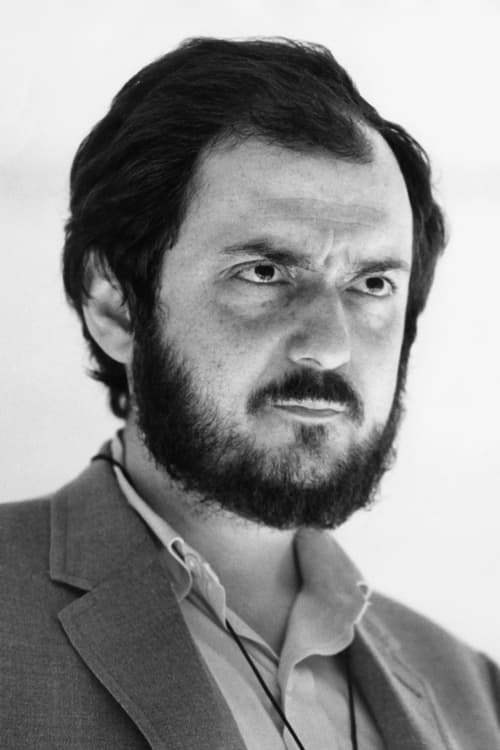Discover
-

Stanley Kubrick
Director -

Anthony Burgess
Novel -

Derek Cracknell
Assistant Director -

Bill Butler
Editor -

John Alcott
Director of Photography -

James Liggat
Casting -

Terence A. Clegg
Location Manager -

Bill Rowe
Sound Re-Recording Mixer
-
 talisencrw
6/23/2021 3:57:46PM
talisencrw
6/23/2021 3:57:46PM
As time goes by, I'll always appreciate my Grade 10 English class (1984-85), taught by Mr. Terry. Looking back, it's probably the year that I was introduced to the most great literary works of all my life (especially 'Anthem' by Ayn Rand and 'Nausea' by Jean-Paul Sartre). Included that year in the course's curriculum was Anthony Burgess' dystopian masterwork, 'A Clockwork Orange' (as well as George Orwell's 'Animal Farm'--like Frank Sinatra would have said, 'It was a very good year'). I was mesmerized with it from the instant I noticed the unique approach to language, the 'ultraviolence' and of course, the eternal question of free will, its relationship to good-and-evil, and the can of worms of the myriad of ethical dilemmas that comes to the fore of individual freedom and rights versus that of society at large. The genius of Burgess was being able to put so well and forcibly, yet in such an entertaining way, so many issues that, had most anyone else set forth on the endeavor, would have come up with the type of off-putting, heavy-handed sermon that would never have reached such a literary pinnacle, and been required reading even now, generations later. It hasn't aged or dated a day. Most cinematic observers felt the book unfilmable. Director Kubrick's adaptations work so well, particularly this, '2001: A Space Odyssey' and 'The Shining' (even though Stephen King would fervently disagree about the latter) because he, as he did with 'Dr. Strangelove', can so easily both find unforgettable visual metaphors for his ideas and so handily combine humour (an under-recognized trait of his, much more readily associated with say, Sir Alfred Hitchcock) with these heavy and daunting philosophical and intellectual volleys. In the wrong hands (particularly a Stanley Kramer, or his ilk), this could have failed miserably, like typical cinematic treatments of Ayn Rand novels. But this worked triumphantly, and heartily exemplifies one of the greatest directors ever at the apex of his craftsmanship. No self-respecting cinephile can avoid this movie, and I heartily recommend you to read the novel as well, though Kubrick nails it so effectively, reading the novel isn't necessary in the slightest for the film to be enjoyed. One of the many 'gamechanger' films of Kubrick's storied and remarkable career.
-
 JPV852
9/27/2021 8:34:22PM
JPV852
9/27/2021 8:34:22PM
Some great visuals and direction not to mention an incredible performance from Malcolm McDowell, I wasn't totally into this, the first half especially was taxing to get through to the point I stopped watching and only finished a couple days later. The rest was good and found myself a bit more engaged however as a whole, this one never grabbed me. **3.5/5**
-
 CinemaSerf
5/29/2023 11:08:11AM
CinemaSerf
5/29/2023 11:08:11AM
This is a truly challenging film that routinely glorifies violence - especially towards women, and offers us a terrifying appraisal of the effects of unfettered government and science working in cahoots with each other. Fifty years on from it's groundbreaking release, it's great to watch this on a big screen again - and though the imagery is much less potent that it was in 1971, the performance from Malcolm McDowell is scarily compelling. The plot centres around him and his three sadistic cohorts who live a disparate life terrorising wherever they roam until finally they go a little too far and he is apprehended. A fourteen year sentence is handed down but after two of them, he seeks enrolment in a controversial, experimental, aversion therapy scheme the results of which don't quite deliver as expected. The film presents us with some some pretty gruesome worst-case scenarios to start with, those serve to exaggerate the threat to normal livelihoods and thus lend credibility to the even more daunting prospect of the clinical conditioning of people. In this case, it is specifically the conditioning of one violent individual, but it's very easy to extend the principle to those with whom the government, or state, might disagree - and Kubrick lays that threat bare for all to see and evaluate. I struggled a bit with the nonsense language at times, it seemed puerile and prone to ridicule, certainly to detract from, the more thought-provoking elements of the plot. Perhaps it is there to serve as steam-valve for the intensity of the subject matter, but I am not convinced it is effective or necessary. The book allows us scope to use our own imagination as to the terror this whole concept could invoke, but as film adaptations go, this one offers us a great and innovative template for any interpretation, and coupled with the powerful use of a classical music score - including Ludwig Van, of course, and a solid supporting cast contributing well, this is a truly momentous piece of cinema.







Malcolm McDowell
AlexPatrick Magee
Mr. AlexanderClive Francis
LodgerNorman Gay
BBC Producer (uncredited)John Savident
ConspiratorNeil Wilson
Prison Check-in OfficerGodfrey Quigley
Prison ChaplainMargaret Tyzack
Conspirator